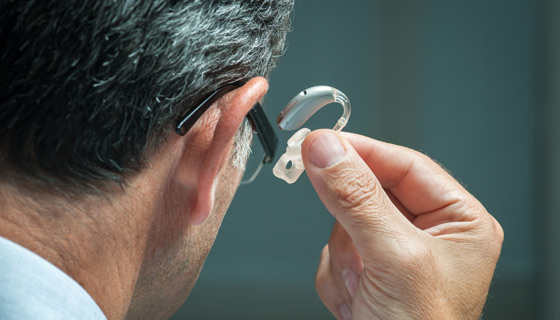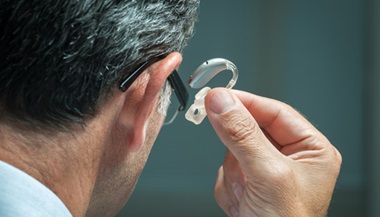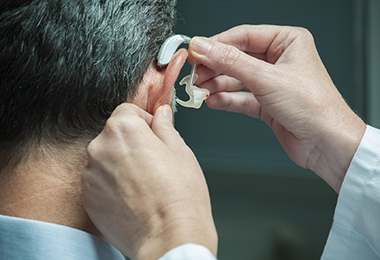Caregiver Guidance: Resisting Help for Hearing Loss
What You Need to Know
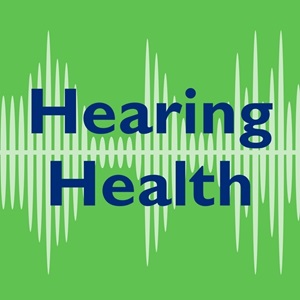
- Hearing problems that are ignored or untreated can get worse.
- One form of hearing loss, presbycusis, comes on gradually as a person ages.
- Research has connected untreated hearing loss with conditions such as dementia and brain atrophy.
Resisting Care
Many people do not want to admit they have trouble hearing. Older adults who don’t hear well may become depressed or withdraw from others to avoid feeling frustrated or embarrassed about not understanding what is being said. Often older people may become confused, unresponsive or uncooperative because they don't hear well.
Hearing problems that are ignored or untreated can get worse. If your loved one has a hearing problem, he or she should see their doctor and learn about the options available to them. These may include:
-
Special training
-
Certain medicines
What should I do if I suspect someone I love has hearing loss?
It is never easy to confront a problem with someone you love, particularly if the person is older than you, like a parent, or is not used to taking your advice. Here are some helpful hints for managing this kind of problem:
-
Begin a dialogue and encourage your loved one to talk about the problem. You can start the conversation by saying, "I’ve noticed that when we talk in person, or over the telephone, you don’t always understand what I say, or you ask me to repeat myself."
-
Bring some relevant literature with you like the quiz below on hearing loss. Ask your loved one to go over the quiz with you, or leave it for him or her to do alone later. The person may be shy to confront the problem with you, and may need some time to adjust to the idea that other people have noticed his or her trouble hearing.
-
Encourage your loved one to talk to his or her doctor, or if you accompany him or her to medical appointments, ask the doctor directly about hearing loss.
-
Remember to be patient. People are often embarrassed or discouraged by hearing loss. They don’t want to have to wear a visible device on their ear. They don’t want other people to know they may be suffering from hearing loss. Let them know that recent advances have improved hearing technologies, and that they may be able to pick a hearing aid in a size or style that will remain inconspicuous.
A Guide for Family Caregivers
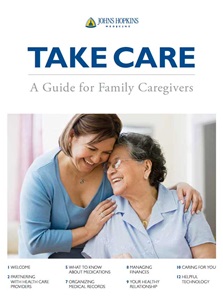
When you’re caring for someone with long-term illness, you’ve got a lot on your plate. And you deserve a helping hand from the experts on aging at Johns Hopkins.
Hearing Loss Quiz for Adults
If you or your loved one are not sure about their hearing, ask the following questions:
If you answer "yes" to three or more of these questions, you could have a hearing problem and should have your hearing checked by an audiologist.
-
Do I have a problem hearing on the telephone?
-
Do I often ask people to repeat themselves?
-
Do I have trouble hearing the other person speaking when there is noise in the background?
-
Is it hard for me to follow a conversation when two or more people talk at once?
-
Do many people I talk to seem to mumble or not speak clearly?
-
Do I misunderstand what others are saying and respond inappropriately?
-
Do I have trouble understanding the speech of women and children?
-
Do people complain that I turn the TV volume up too high?
-
Do I hear a ringing, roaring or hissing sound a lot?
-
Do some sounds seem too loud or too soft?
If you suspect your loved one has hearing loss, your doctor will refer you to an otolaryngologist (an ear doctor) as well as an audiologist, who will test the person’s hearing. If hearing loss is moderate, the audiologist may suggest fitting the person with a hearing aid or other alternatives to hearing aids.
Hearing Loss: Why Choose Johns Hopkins?

Hearing problems don’t discriminate and can affect people at any stage of life. Don’t suffer in silence with hearing loss.
Our center’s physicians are among the finest and most highly skilled otologists and neurotologists (ear, nose and throat doctors) in the world. Their expertise, coupled with the care of licensed and certified audiologists, ensures you get quality care.
Better Hearing and Speech Month | Johns Hopkins Cochlear Implant Center
Johns Hopkins cochlear implant surgeon, Frank Lin, M.D., Ph.D., discusses how 1 in 5 Americans has hearing loss, and how Johns Hopkins research is showing hearing loss' cascading effects on our overall ability in our daily lives.

